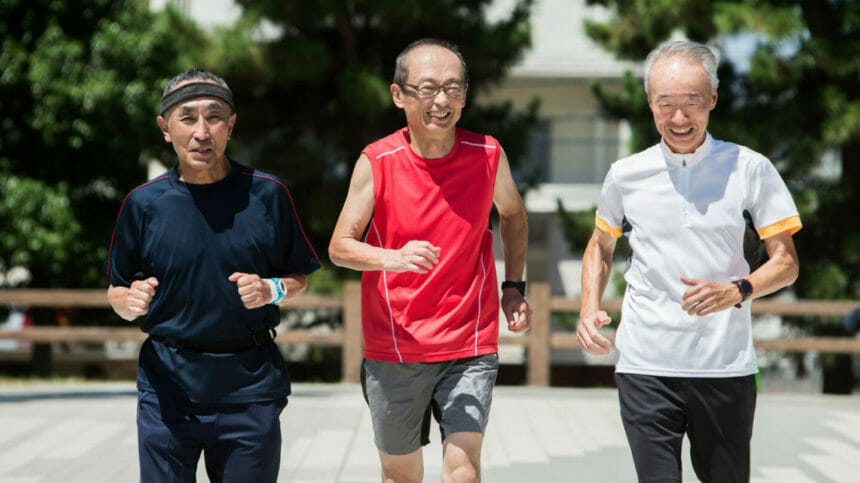
Exercise that engages the heart and lungs appears to be good for the brain, report German researchers. And older adults may derive stronger benefits when it comes to memory-sensitive regions.
The investigators tracked the physical fitness of more than 2,000 individuals ages 21 to 84. Brain volume was measured using magnetic resonance imaging. The results revealed a strong association between cardiorespiratory fitness and the volume of gray matter in the brain.
Gray matter has been shown to support cognitive abilities, and low volume can be a sign of cognitive decline. Participants ages 45 and older benefitted the most from increased fitness, suggesting that cardiorespiratory exercise may help slow decline, the researchers reported.
“Older people seem to have a stronger benefit in the memory-sensitive hippocampal region by higher [cardiorespiratory fitness],” wrote Katharina Wittfeld, Ph.D., from the German Center for Neurodegenerative Disease, and colleagues.
The findings in older adults are especially noteworthy, according to the authors of an accompanying editorial.
“There is good evidence for the value of exercise in midlife, but it is encouraging that there can be positive effects on the brain in later life as well,” said neurologist Ronald Petersen, M.D., Ph.D., from the Mayo Clinic.
The study appears in Mayo Clinic Proceedings.



